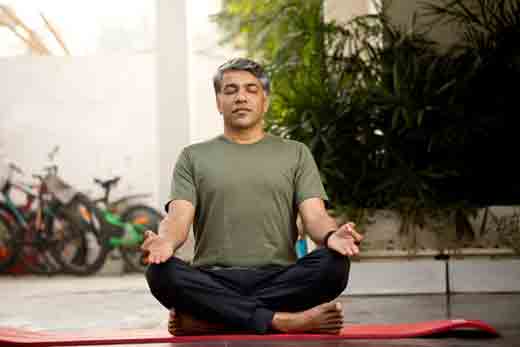There are many facts that everyone should know about a Meditation Program cheap before beginning one. These facts include the fact that meditation is a secular exercise, which triggers the relaxation response and improves attention and reduces stress. Before beginning any meditation program, you should speak with your health care provider. Be sure to make your instructor aware of any mental health problems you have. You should also know about the experience and training of the instructor, and tell them if you are already receiving medical care.
Meditation is a secular exercise

Meditation is a secular exercise, involving no supernatural or religious component. But secular practitioners have found that it’s a powerful way to deepen their spiritual experience. In a recent article, Lions Roar magazine asked readers to answer a few questions about meditation. Buddhist teachers representing the Mahayana, Vajryana, and Theravada schools responded. Sadly, no one came forward to present a secular Buddhist view of meditation.
The earliest known evidence of meditation dates back to 5,000 BCE and has religious roots in China, Egypt, Hinduism, and Buddhism. The practice spread through the Silk Road and across Asia, gradually altering over the centuries to suit the culture of each location. However, it was not until the twentieth century that meditation became a secular exercise, gaining popularity among non-religious people and transcending any specific religious affiliation.
It triggers the relaxation response
Research suggests that the use of relaxation practices like meditation can reduce the heart rate, blood pressure and oxygen consumption. People with a wide range of illnesses are benefited by this method. These conditions include arthritis, cancer, insomnia, depression and anxiety. Relaxation practices also counter the harmful effects of stress. Whether you are experiencing chronic stress or just need to relieve anxiety, meditation will help you get relief.
The relaxation response is a physical state of deep relaxation triggered by various factors. The brain’s relaxation response is activated when we practice meditation and deep breathing. As a result, we experience lower blood pressure, increased mood and reduced stress. According to the research, the relaxation response can help people improve health conditions caused by chronic stress. The relaxation response can be triggered by many activities including yoga, nature walks, baking banana bread, and even cooking.
It improves attention
In our daily lives, our attention is fidgety. It bounces from thing to thing, never really settling on a single subject. Binocular rivalry illustrates this fidgety nature. It can shift from picture to picture based on our interest. In one lab experiment, researchers showed a picture with vertical and horizontal lines to one eye. They observed that the brain switched between the two, merging the lines at one point.
Another study showed that a meditation program improved attention and memory in healthy young adults. Participants in the study had to practice for about 20 minutes per day. Initially, the program prompted participants to focus on their breathing for about 15 seconds, but after six weeks, they were able to sustain concentration for more than three minutes. That was twice as long as they were able to sustain attention when they were seated in a chair.
It reduces stress
A systematic review of the evidence on whether a meditation program can reduce stress has been conducted to determine the effectiveness of the intervention. There are a number of implications for policymakers and payers, but one of the most important is the overall impact of the program on stress and well-being. Essentially, a meditation program reduces stress and promotes well-being, which is an important goal for any health program. Here, we review the evidence on the effectiveness of meditation programs for reducing stress and other health risks.
The results of this study indicate that a meditation program reduces stress. The effectiveness of a meditation program depends on the individual practitioner’s skill level and the duration of the meditation program. The duration of a meditation program can vary, but a recommended length is eight weeks. In this study, participants in the meditation program experienced a 45% reduction in stress, a significant decrease in anxiety, and a marked increase in self-esteem.
